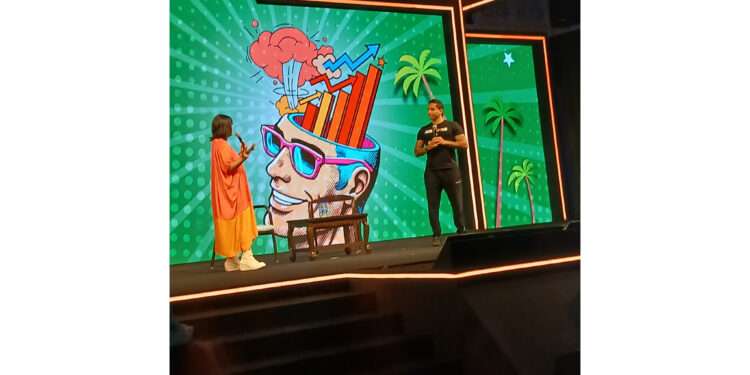As Luke Coutinho stressed, healing burnout isn’t about doing less, but doing differently—with intention, balance, and care.
Mumbai: This fireside conversation between Luke Coutinho and Babita Baruah tackled one of the most pressing issues in creative and high-performance industries today: burnout. With a holistic lens on health and well-being, Luke shared insights and practical strategies for fostering sustainable creativity and mental wellness. Key Insights: Burnout ≠ Stress or DepressionBurnout is not just about being tired. It’s chronic emotional and physical exhaustion marked by numbness, disconnection, and a fading sense of joy. Clarity in identifying it is crucial. Wellness Must Be PersonalisedWellness isn’t one-size-fits-all. Luke cautioned against blindly following trends and emphasized adapting practices like nutrition, sleep, and movement to suit individual lives and rhythms. Four Pillars That Power CreativityProper nutrition, quality sleep, emotional wellness, and physical movement directly influence creative energy, focus, and output. Poor diet and sleep patterns, in contrast, impair brain function and joy. Movement is MedicinePhysical activity isn’t just for the body—it’s a brain booster. Movement increases mental clarity and emotional regulation, making it an essential tool for creative professionals. The Myth of Hustle CultureLuke debunked the glorification of nonstop hustle. Chronic busyness reduces long-term performance. Purposeful urgency and rest-driven productivity lead to more sustainable success. Presence Over PressureStillness, mindfulness, and being present allow for deeper creative insight. When achievement feels empty, it’s a sign to pause and realign. Reconnection Through SimplicityLuke recommended reconnecting with joy through simple yet profound experiences—spending time in nature, being with loved ones, and cultivating gratitude. Rituals for Daily BalanceGratitude journaling, breathwork, mindful eating, and regular digital detoxes are powerful tools to reset and recalibrate mind and body. Workplace Wellness Is Non-NegotiablePost-COVID, mental health is a top priority—especially for Gen Z and millennials who demand emotionally supportive environments. Leadership with Emotional IntelligenceLeaders must model vulnerability and emotional awareness. Open conversations and regular check-ins help build empathetic, psychologically safe cultures. Normalize Mental Health SupportWorkplaces should promote therapy, mindfulness, and open dialogue as normal—not as reactive measures but as proactive wellness infrastructure. Training & Policies MatterManagers need to be trained to spot and respond to signs of distress. Clear, stigma-free mental health policies must be part of every organization’s foundation. Psychological Safety = Better PerformanceRetention, innovation, and productivity thrive in environments rooted in trust, support, and emotional safety. Final Thought: In an industry that runs on creativity, emotional well-being isn’t optional—it’s foundational. As Luke Coutinho stressed, healing burnout isn’t about doing less, but doing differently—with intention, balance, and care.






























